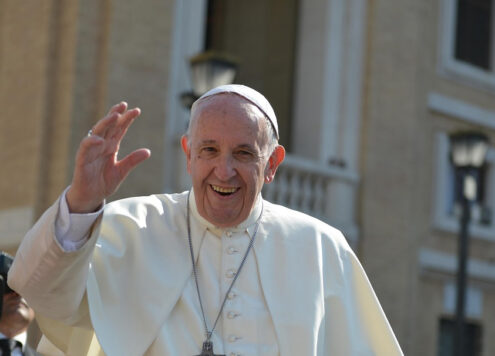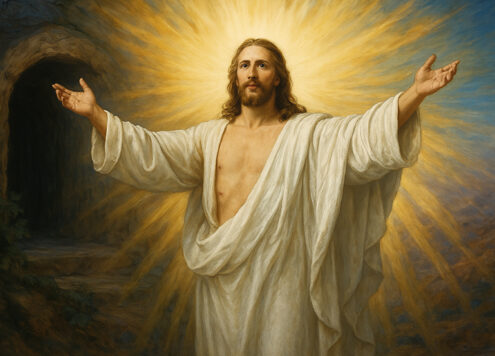The Church has designated the Second Sunday of Easter as Divine Mercy Sunday. Christ came among us, not to burden us with laws, but to set us free from sin to follow Him in love. The great mercy of God for us has been eloquently described in John 3:16 which states, “God so loved the world that He sent His only begotten Son that whoever believes in Him might not perish but have eternal life.”
People, like the self-righteous Scribes and the Pharisees who lived in the days that Jesus walked this earth, were opposed to His message of mercy which overflowed to sinners and misfits and to those who disregarded the law.
Jesus called Matthew, a tax collector, to follow him, and even dined at Matthew’s table along with “many tax collectors and sinners.” The Pharisees saw this and complained to Jesus’ disciples, “why does your teacher eat with tax collectors and sinners?” Upon hearing this, the Lord said to them, “learn the meaning of the words, I desire mercy, not sacrifice.”
He was quoting the Old Testament prophet, Hosea,( chapter 6: 6 ) who lived and preached a merciful message. Although his wife had left him and had engaged in loose living, Hosea forgave her and took her back without criticism. The message of mercy was evidently an important part of the Old Testament. So, what happened? Rather than follow the word of God, religious leaders of the day preferred to follow the biased traditions of men ( Mark 7: 13 ).
The Pharisees like most self-righteous people, thought they were perfect because they followed all the rules. You could say that they were walking rules. They kept all the commandments and observed all the laws of the Old Testament, but they were hard of heart and were given to judging others harshly who were not like them.
The Lord tells a parable about a Pharisee and a Publican who went into the temple to pray. The Pharisee praised himself for not being like the rest of men and, especially, the Publican who did not observe all the commandments. The Lord, however, had mercy on the Publican and He praised him because of his humble prayer: “Lord, have mercy on me, a sinner” ( Luke 18: 13 ). It is the Publican, not the Pharisee, who leaves the temple justified, says the Lord.
Jesus, in His bountiful mercy, calls everyone to follow him. He does not call the perfect because we are all sinners. Those who follow him, like Matthew, the tax collector, or the Publican or Mary Magdalen or Paul of Tarsus, who once persecuted Him, could become saints. They could lead holy lives as long as they were willing to turn away from sin and be faithful to the gospel. No one has to be perfect, but you can be perfected by following Christ’s example.
This is the awesome blessing of God’s mercy.
Fr. Hugh Duffy











3 Comments
Lois Bradley
Thank you Father Duffy I will be attending our Divine Mercy Prayer Service here at St John’s the Baptist in Hot Springs AR @ 3PM tomorrow. I am so glad I am on your mailing list I get peace reading your message and listening to the music.
Dale Schwarz
Thank you, Father Duffy. I’m so happy to receive your blog, I am a parishioner at Holy Name of Jesus in Semmes , AL but my husband, Tom and I will be attending services for Divine Mercy at Our Lady of the Bay in Irvington, AL. God bless you!
Russell Marker
Amen Padre. Love getting your emails and reading your sermons and blogs. They keep me grounded and closer to the Lord. Thank You!